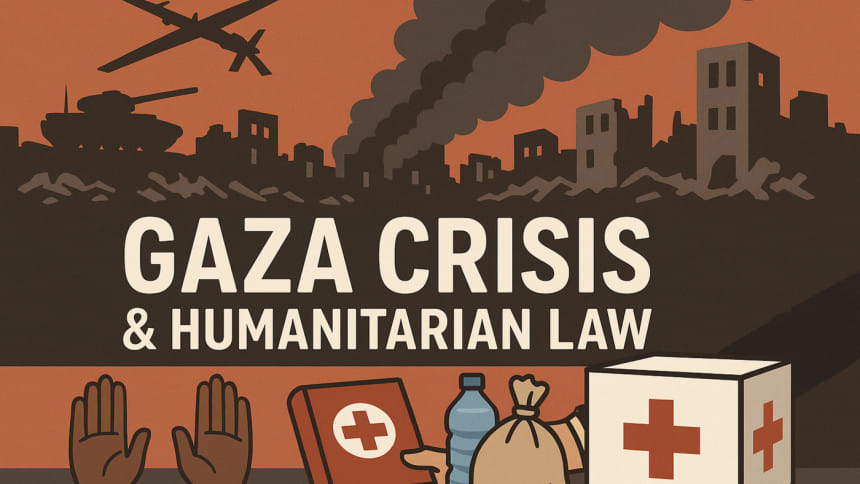The crisis in Gaza and failure of international humanitarian law

The Israeli attacks on Gaza continues to have deadly humanitarian impact. The ongoing attacks have strengthened the allegation regarding the impartiality of International Humanitarian Law (IHL) to the effect that the law is used by strong powers only to subdue the weaker ones and to get away with it. Illegal military activities by Israel especially the construction of Morag Corridor aimed at isolating Rafah have led to death of many civilians and wanton destruction. Gaza's Health Ministry says more than 60,000 Palestinians died since hostilities broke out, most of them women and children. There are reports of attacks on civilians and journalists as well as assaults on medical facilities across various international news portals. Basic supplies such as food, medical devices, and fuel has been regularly blocked from entering Gaza according to reports.
The attacks contravene both the human rights law and the laws on armed conflicts. These violations have been enshrined under different legal regimes: the Geneva Conventions (Fourth Geneva Convention, 1949), Additional protocols to the Geneva conventions (1977), Rome Statute of the International Criminal Court (1998), United Nations Charter (1945), and the binding UN Security Council Resolution such as Resolution 18. In addition, Israel's actions significantly violated the Ceasefire Agreement (2025) that was signed in January 2025 and brought war back, putting Gaza's humanitarian condition in a more horrifying state.
Critics argue that strong governments often manipulate IHL through selective application of the law in order to advance their geopolitical interests and to justify interventions or to protect themselves from critics and their allies. This selective enforcement compromises the universality and legitimacy of the IHL. Thus, the IHL enforcement procedures are rendered nugatory when the great powers come into play.
The irony of the international humanitarian law is further revealed by the activities of the countries that declare themselves as the global defenders of human rights and yet persistently violate them. The United States, for instance, has been frequently charged with violations of humanitarian law. From torturing the detainees in Guantanamo Bay to drone strikes killing hundreds of civilians in Yemen, Afghanistan and Pakistan, America's military operations have constantly violated the norms of distinction and proportionality set in IHL.
Russia, another global superpower, has similarly ignored humanitarian regulations in its invasion of Ukraine through attacks against civilian structures, hospitals, and residential areas, accompanied by the usage of cluster munitions. Russia's attitude during the Syrian civil war was also harshly criticised, especially for targeting population spots and supporting the Assad regime utilising chemical weapons.
Israel has also maintained its militaristic occupation in the West bank of building settlements with support from the United States, and some of its European allies. The siege of Gaza and constant military attacks against the territory killing thousands of inhabitants destroying structures and rendering areas uninhabitable, are viewed by many legal academics as a series of on-going war crimes. Despite the UN investigations and global outrage, little progress has been made to hold Israel accountable.
Notwithstanding its noble aspirations, the IHL is considered by many to be a political instrument invented and controlled by privileged states to maintain hegemony. In reality, IHL often plays the role of a shield for the powerful, and a sword for the powerless. Hence, we see the institutions mandated with the responsibility of enforcing humanitarian law, such as, the International Criminal Court (ICC), the United Nations Security Council (UNSC), and many other tribunals, are also blatantly disregarded or manipulated by the very same countries that has perpetrated some of the largest violations of the humanitarian law. Such differences expose the IHL as a strategic structure through which dominating countries use to delegitimise and dehumanise their opponents, penalise recalcitrant nations, and manipulate geopolitics without being held liable.
The authors are respectively Lecturer, Department of Law and Justice, North East University, and law student at Stamford University Bangladesh.

 For all latest news, follow The Daily Star's Google News channel.
For all latest news, follow The Daily Star's Google News channel. 



Comments